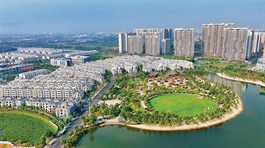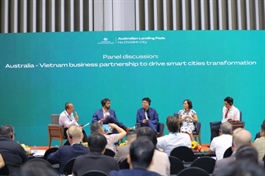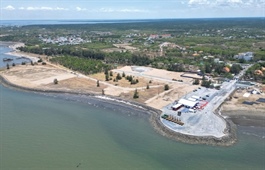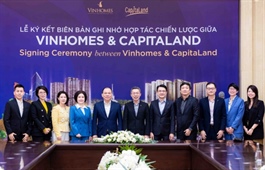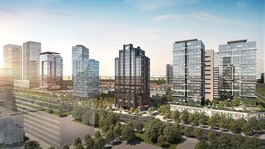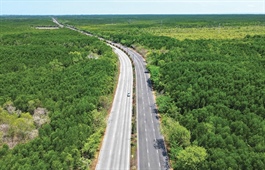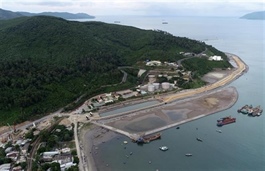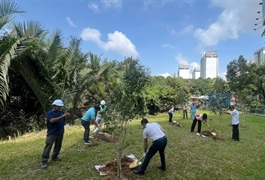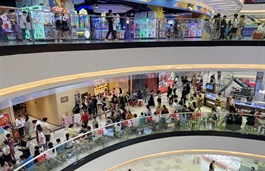UAE’s lessons for Vietnam: Driving growth and investment in luxury real estate
UAE’s lessons for Vietnam: Driving growth and investment in luxury real estate
Vietnam has emerged as an increasingly attractive destination for international investors. A seasoned leader in economic development, Ismail Al Naqi, director general of the Free Zones Authority of Ajman (UAE), shares strategic insights that helped Ajman rise to prominence and offers a unique perspective on Vietnam's growth trajectory and potential.
Vietnam’s economic trajectory, particularly in Ho Chi Minh City, is positioning it to become a hub for foreign direct investment (FDI) and high-net-worth investors (HNWIs). From the UAE’s viewpoint, how do you perceive this economic transformation?
Vietnam has long been part of the UAE’s strategic cooperation agenda. A clear testament to this is the Comprehensive Economic Partnership Agreement signed between our two nations late last year, a swift and decisive step in bilateral cooperation.
The impact is already tangible: bilateral trade now stands at approximately $5.5 billion and is expected to double over the next decade.
Prime Minister Pham Minh Chinh’s recent visit to the UAE further solidifies the strong relationship between our countries. Personally, I was highly impressed by Vietnam, a dynamic nation undergoing a remarkable transformation, with numerous promising development initiatives underway.
The Ajman Free Zone has driven economic growth in Ajman and the UAE by attracting global investors, FDI, and diversifying the economy. What lessons from Ajman’s model could Vietnam adopt to achieve similar success?
Our approach in the UAE, particularly in Ajman, is rooted in simplicity. We try to keep things simple yet effective. Our guiding principle is straightforward: ‘Whatever is good for business is good for the UAE’.
This mindset allows us to create a highly agile operating environment, where decisions are made quickly, leadership is accessible, and communication between government representatives and leadership is seamless, and communication with the public is also highly effective.
Like Vietnam, the UAE is a young nation that has transformed from a fishing village into a global economic power.
A key success factor is our deep understanding of investor psychology, particularly the global investor’s strong aversion to risk.
That’s why ensuring safety and security is a top priority across all our development policies, something we’re very proud of. For example, in Dubai, the KPI for police response time is only four minutes from the moment a crime is reported.
We are also a forward-looking country, especially in AI.
In 2017, the UAE became the first country in the world to establish a Ministry of AI. Perhaps the most valuable lesson I can draw from our developmental journey is this: when national development goals are embraced at all levels, from top leadership to every citizen, and everyone believes in the same principle, you create a truly successful model.
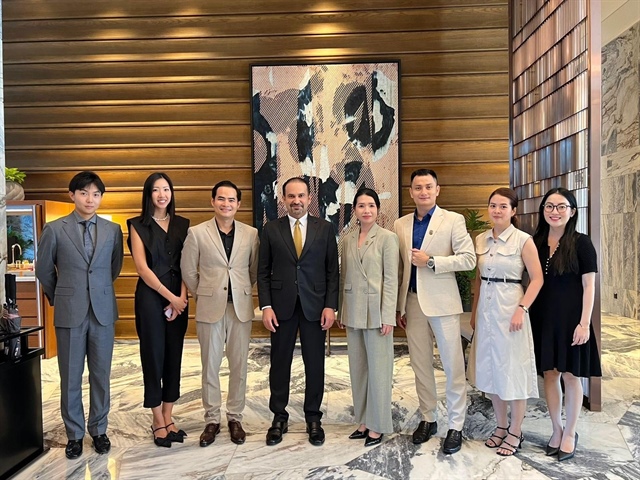
Ismail Al Naqi (middle) and representatives from Masterise Homes and InnoLab Asia at the JW Marriott Residences Grand Marina Saigon, Sea |
In the UAE, Dubai has set a global benchmark for luxury and branded real estate. What key factors have driven this success, and how could emerging markets like Vietnam adapt these strategies to attract HNWIs?
In Dubai, our approach to real estate focuses on creating real, lasting value, not merely constructing buildings.
We aim to design meaningful living experiences that contribute to a cohesive and vibrant community. Each development connects to the broader urban ecosystem rather than standing alone.
In Ajman, our 2030 vision is to build a ‘15-minute city’, where all essential services such as schools, hospitals, pharmacies, entertainment, and public spaces are all within a 15-minute walking distance. Achieving this requires a complete re-engineering and re-urbanisation of the city.
I was particularly impressed by the approach of the Vietnamese developer Masterise Homes. Their developments demonstrate a strong sense of purpose, not only delivering high-quality luxury real estate, but also aiming to create value for the economy and address unmet needs in the market.
This kind of contribution plays a meaningful role in shaping Ho Chi Minh City’s modern identity, and that, to me, is the definition of success.
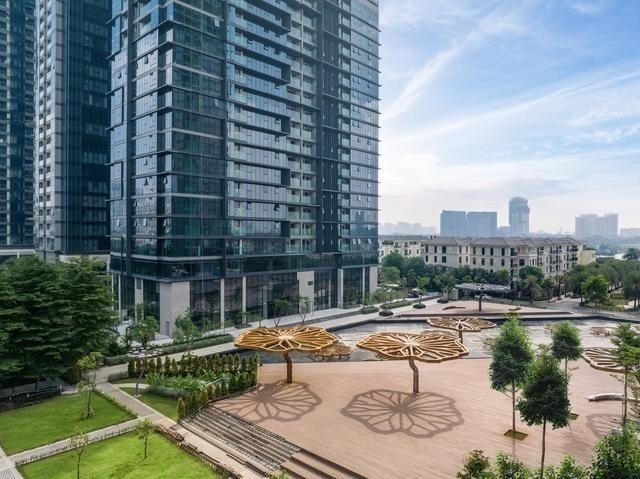
Lotus Park at Grand Marina, Saigon is inspired by 233 years of heritage from the historic Ba Son Shipyard, with the Steel Lotus Tree symbolising the elegance of Vietnam’s national flower |
You have visited Grand Marina, Saigon, the world’s largest Marriott-branded residential project. How do you believe such developments can enhance Vietnam’s global standing in the international luxury real estate market and attract foreign investors and buyers?
What Masterise Homes is doing in Vietnam is truly impressive. Grand Marina, Saigon is not only the world’s largest branded residential development under both the Marriott and JW Marriott brands, but also a project that revives the cultural essence of its location.
Here, historical values and local cultural identity are carefully preserved and subtly embedded in the architecture, expressed through a compelling brand story that sets it apart, ensuring the project leaves a lasting impact not only in its design but also in how it connects with buyers' aspirations and identity.
This philosophy closely aligns with the way ultra-luxury real estate is approached in the UAE and Dubai, where developments are not merely grand or lavish but are designed to reflect cultural richness and to create long-term value for the community.
Grand Marina, Saigon is being crafted in an exquisite manner, with the goal of delivering a living experience that evokes a sense of delight even before stepping inside.
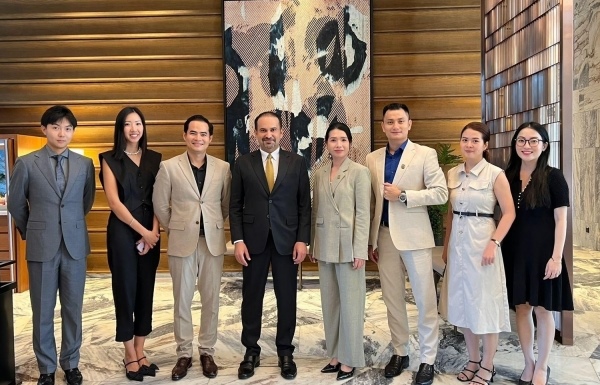
Grand Marina, Saigon is home to the first urban JW Marriott branded-residences in the Asia-Pacific region |
Based on your experience, what would be your recommendations for Vietnam to strengthen its global competitiveness?
Vietnam has significant potential thanks to its strategic location. The UAE is already an investor in Vietnam. However, in today’s highly competitive global landscape, attracting investment requires innovative incentives that benefit both investors and the host country.
The CEPA agreement between the UAE and Vietnam represents a promising economic corridor. Vietnam should capitalise on this advantage and intensify efforts in promoting tourism in a more structured way.
Furthermore, nurturing an entrepreneurial spirit - embracing risk-taking and learning from failure - is crucial. The government should continue to create favourable conditions for Vietnamese enterprises to expand globally.
The highlight of your visit was the flagship forum, Vietnam - UAE Business Bridge: Unlocking Opportunities with Ajman Free Zone. What was the significance of this forum for both countries?
This event served as a dynamic platform to foster trade, investment, and long-term collaboration. It was a pleasure to co-host the forum alongside Huynh Cong Thang, chairman and CEO of InnoLab Asia.
The forum spotlighted the Ajman Free Zone as a high-potential gateway for Vietnamese enterprises aiming to expand globally, particularly into the Middle East and North Africa region.
- 17:00 16/05/2025



